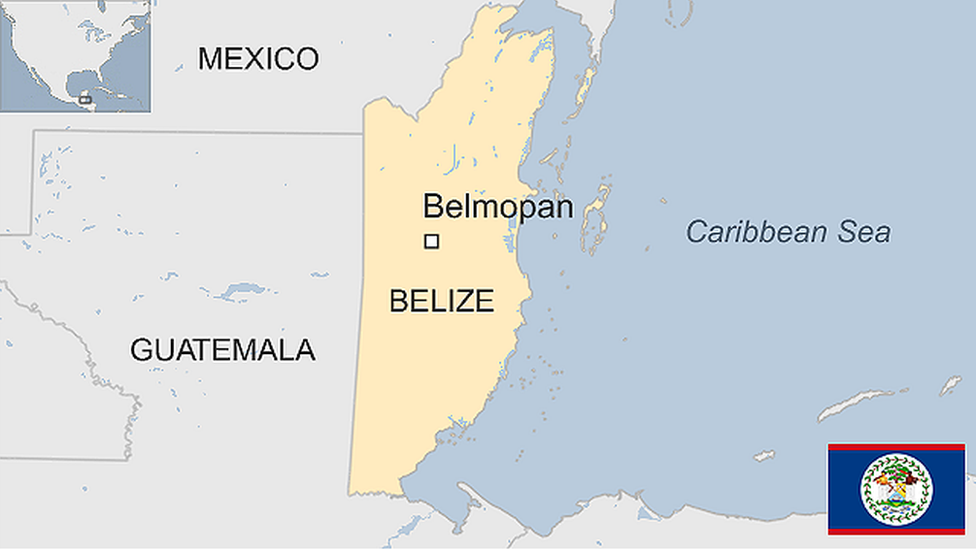John McAfee's life on the margins
- Published
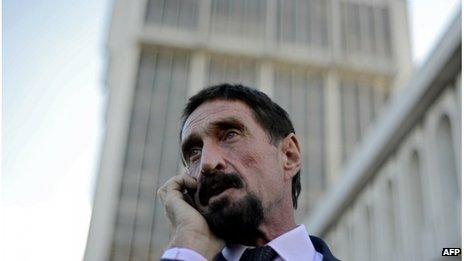
Charismatic huckster, arch self-promoter or fugitive? John McAfee, the tech millionaire who fled Belize after the murder of his neighbour, eludes easy descriptions.
Smuggling himself across the border from Belize to Guatemala, Mr McAfee said he had evaded capture by dying his hair and beard, and puffing up his face by filling his mouth with chewing gum.
He claims he is being persecuted by the authorities and says that he has nothing to do with the death of his neighbour, Florida businessman Gregory Faull.
"Now that I'm here I can speak freely. I can speak openly," he told reporters in Guatemala City, saying that he would expose corruption in Belize's government.
Belize Prime Minister Dean Barrow had a more prosaic explanation: "I don't want to be unkind to the gentleman, but I believe he is extremely paranoid, even bonkers."
Belize police named him a "person of interest" in the murder, and Guatemalan police have now arrested him and said they would seek to send him back.
His exit from Belize was hardly low profile. He fled with two journalists from Vice magazine who accidentally informed the world of his exact whereabouts by posting an image with GPS co-ordinates embedded in it.
Spectacular fall
It is a far cry from the early 1990s, when Mr McAfee was at the height of his powers in Silicon Valley.
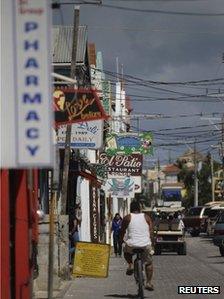
The authorities in sleepy San Pedro had been alarmed by his behaviour
He was hailed as one of a new generation of tech pioneers after he hit on the novel idea of giving away his software, recouping the money by charging companies a licensing fee.
McAfee Associates, the firm he founded, was one of the industry's hottest properties and he was widely regarded as a leading anti-virus expert.
But his fall, when it came, was spectacular.
In early 1992 he declared on US television that a computer virus called Michelangelo was about to cause havoc on PCs around the world. His software became a market leader almost overnight. But his doom-laden prophecies proved unfounded and he was ultimately forced out of the company.
"I don't think he can be regarded as a major player in terms of the software he developed," says computer security expert Alan Woodward.
"He was certainly a good businessman at the time, though."
Belize's 'John Wayne'
He pocketed $100m (£60m) from the sale of his stake in the company but did not re-emerge into the media spotlight until 2004, when he announced a huge investment in a desert air-strip that he intended to use to popularise an obscure pastime known as "aerotrekking".
The sport involved flying small planes very low over the desert. It was incredibly dangerous and failed to catch on. After the 2008 financial crash, he claimed to have only $4m left, and moved to Central America.
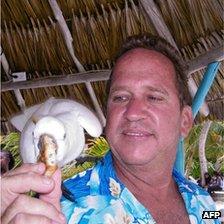
Gregory Faull was shot in the back of the head
The 67-year-old took up residence in a village called Carmelita in northern Belize and launched a series of expensive and often bizarre projects, including an attempt to synthesise antibiotics from jungle plants.
Joshua Davis, a journalist for Wired magazine who has spent the past six months researching his book John McAfee's Last Stand, says Mr McAfee came to believe Carmelita was the centre of the drugs trade and regarded himself as being on a mission to clean it up.
"He built a jail in the village, surrounded himself with armed guards and started acting like John Wayne... He never told the villagers what he was doing, and the authorities believed he was acting like a narco-trafficker," says Davis.
In late April more than 40 officers from the Gang Suppression Unit (GSU) raided his home, arrested him and seized guns and chemical-processing equipment.
The guns were licensed, no drugs were found, and he was not charged with any offence. But he did not return to the village house, and instead left to live by the beach on Ambergris Caye.
Shotguns and girls
The raid sparked renewed interest in Mr McAfee, and a steady stream of news reports and blog posts emerged with pictures showing him as tanned and tattooed, often brandishing pump-action shotguns surrounded by young women.
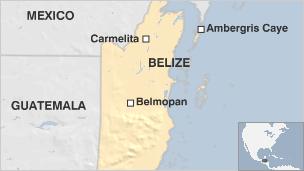
He appeared to enjoy the limelight, and seemed to play up to his burgeoning reputation as a paranoid expat living on the margins of society.
Davis, who interviewed Mr McAfee several times, believes his reaction to being questioned over the death of his neighbour is consistent with his behaviour throughout this period.
"He is an extremely paranoid person and he has been very fearful of the GSU. There is an explanation whereby he didn't kill Faull, but because of his paranoia he is acting in a very crazy way," Davis says.
Now under arrest in Guatemala, the only aspect of Mr McAfee's future that seems clear is that he will not be settling down to enjoy a quiet retirement.
- Published4 December 2012
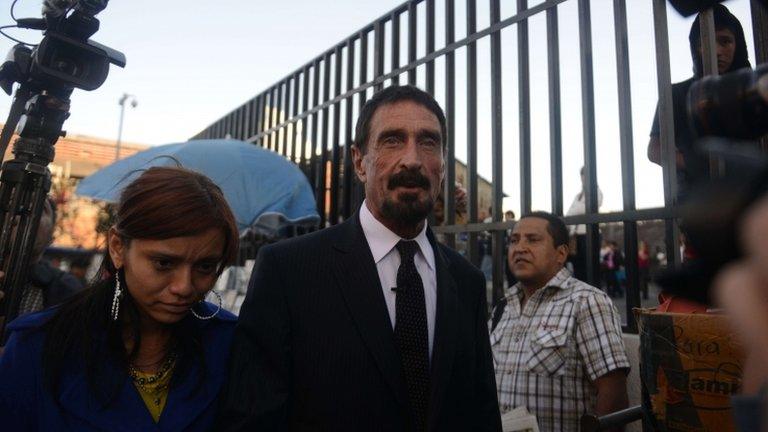
- Published19 November 2012
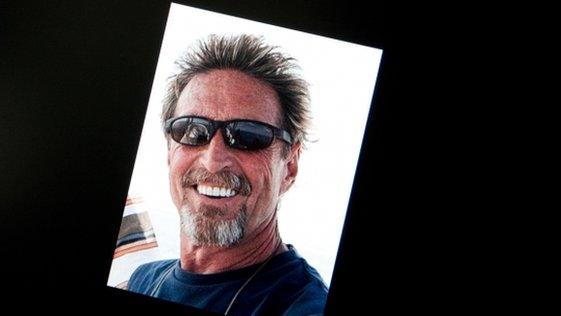
- Published14 November 2012
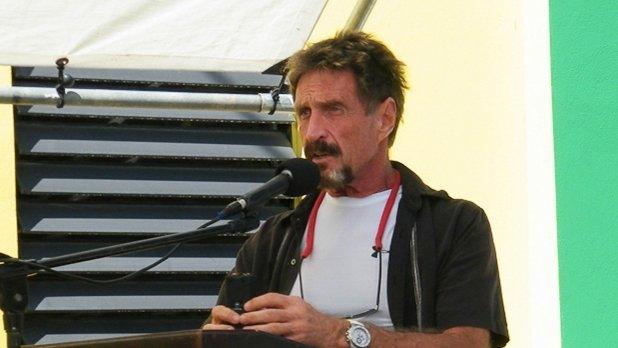
- Published13 November 2012
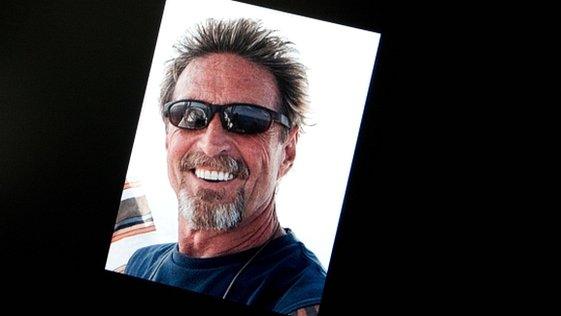
- Published10 April 2023
